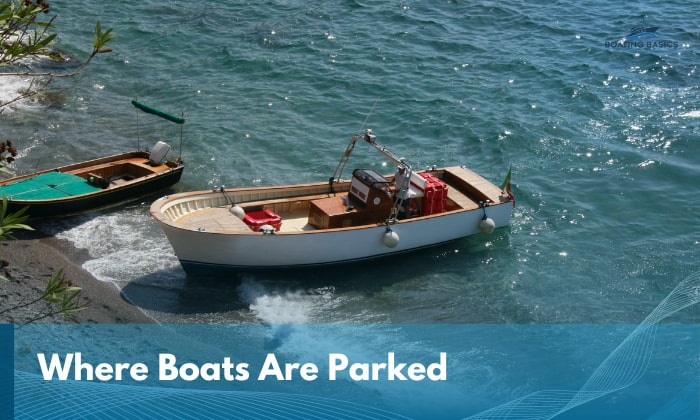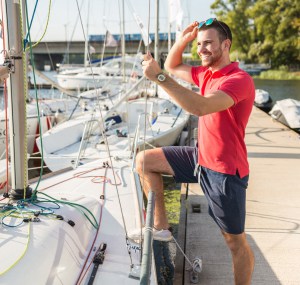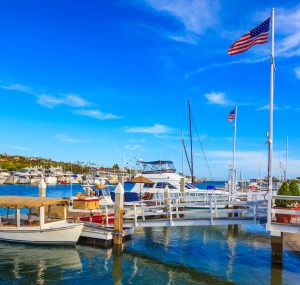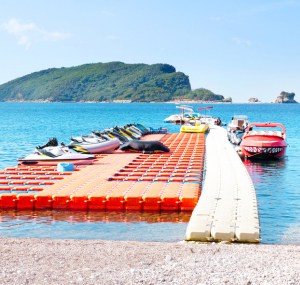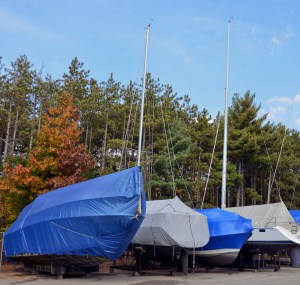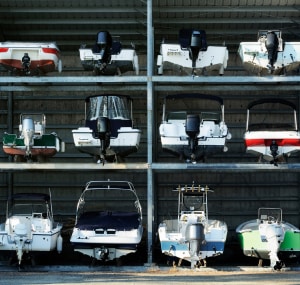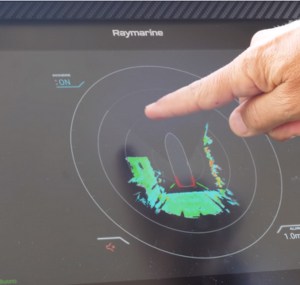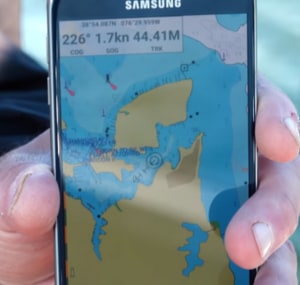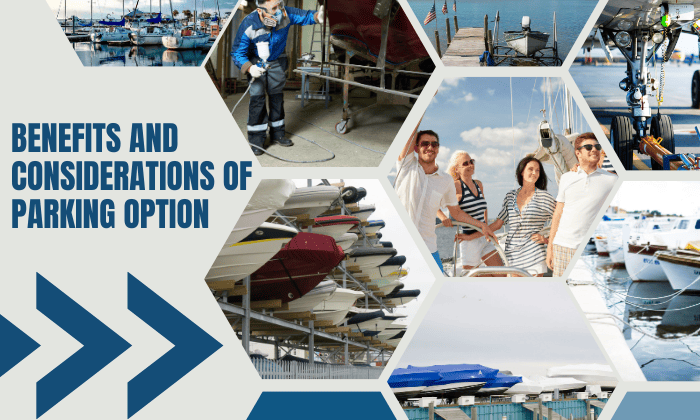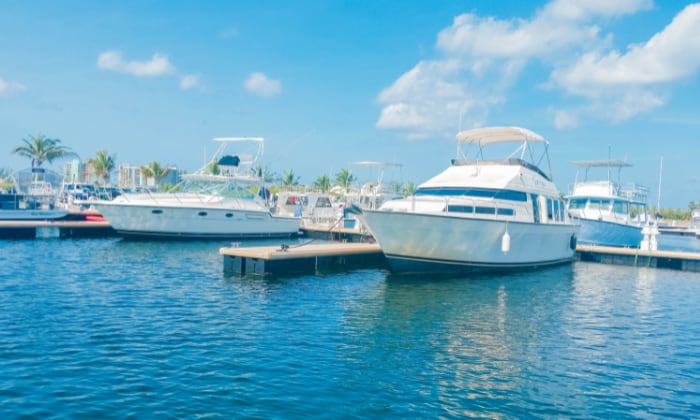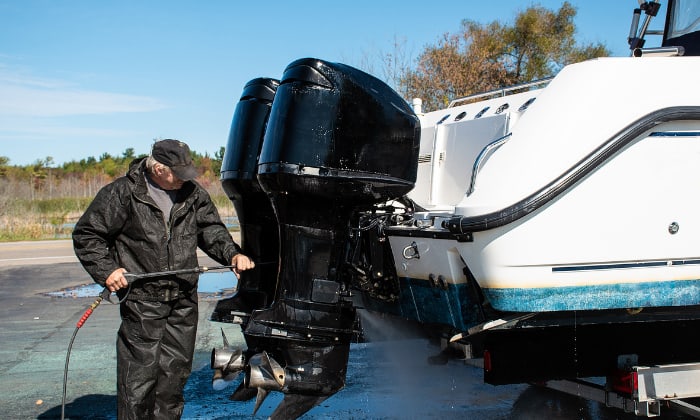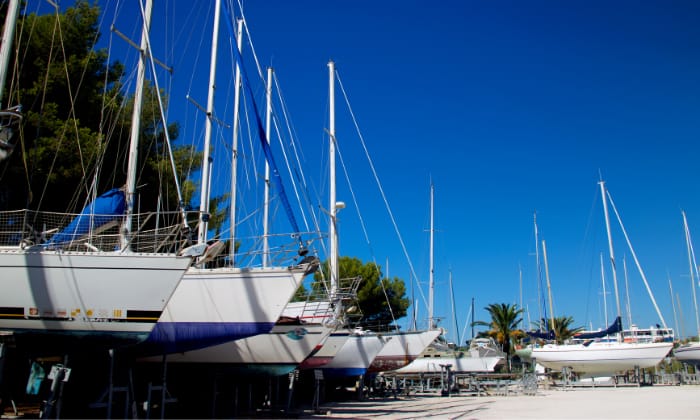As far as boating as a habit or occasional hobby is concerned, you should know all your options as to where boats are parked. Or, perhaps, you just want to spectate vessels in your area?
Conventional options include docking spaces, marinas, and yacht clubs. More novel and techy ones are floating docks, dry storage, storage yards, mobile apps, and automated boat parking systems.
Table of Contents
Traditional Boat Parking Options
When discussing options, we first need to be clear about what we mean by “boat parking”. What is it called when a boat is parked? Many would say it’s to “berth” it, which could mean mooring or docking it securely.
Essentially, you “park” a boat by securing it to a fixed location. It’s done with the intention of not using it for an extended period or if you have long-term storage in mind.
With those conditions in mind, these are your best options:
1. Marinas
Marinas remain the top option among boaters because they are designed to accommodate various watercraft types and their operators while offering multiple services and amenities. A marina functions as a central hub and facility where you can safely moor your boat, often in a boat slip you reserved beforehand.
2. Yacht clubs
A yacht club is an option for those who enjoy its amenities and have signed up as members for these privileges. Almost all come with a dedicated marina or dock for the members’ convenience, so you won’t run out of options when parking a boat.
3. Docking spaces
Depending on where you are in the US, these can be called docks or slips, but the two are synonymous at best. If you want to get technical with your boat dock terminology, a slip is just one of the many parts of a boat dock, the area where it is parked or stored, to be exact.
Other than that, docking spaces often comprise decking, also called a finger, featuring flotation supports, ramps, railings, and even a roof.
These structures and spaces are often what come to mind when we talk about where boats are docked, along with marinas and yacht clubs. Incidentally, a port or harbor is the stopping place of a ship, technically functioning as its docking space.
Innovative Boat Parking Solutions
These are the vessel parking options that have been unlocked thanks to creative imagination and proactive innovations in the boating industry.
1. Floating docks
These fulfill the same purpose and security as standard docks. They do have distinct perks, such as automatically being able to adjust to changing water levels while being more versatile than their conventional counterparts.
2. Dry storage facilities
Speaking of long-term storage, these facilities are your best bet. You can choose them if you prefer to skip a slip in your local marina, where your vessel will stay on the water for months. The same marina could have this kind of facility, too, so be sure to ask about it.
One advantage of these dry storage facilities is that they’re pretty affordable. Plus, by keeping your boat dry and off the ground, you save time and effort cleaning and antifouling the vessel.
3. Boat storage yards
These are a favorite alternative simply because they can save you a lot of money compared to other parking and storage options. Since your vessel will likely be placed on a trailer with minimal protection, though, this isn’t exactly a safe option. I suggest checking the security measures placed first-hand before deciding.
Emerging Trends and Technologies
Tech continues to influence the boating industry, much like other major industries of its kind. These boat parking trends serve as clear proof of how far it has gone in doing that.
1. Automated boat parking systems
These take the usual stress out of parking boats and ensure smooth docking every time. With the help of premier technology like cameras, AI, GPS, and sensors, the system will basically do the proper adjustments for you to avoid collisions.
At least, I can say as much for products like DockSense, which guarantees your boat will always have a safe distance between objects it may hit while parking.
2. Mobile applications for boat parking
Mobile apps help you conveniently locate boat parking options within your area. With the Boatpark app, you can easily locate and reserve available mooring places, essentially keeping numerous options open should your favorite marina be packed at present.
Some apps are not so much a boat parking option as a way to familiarize yourself with how parking is done in most docking spaces and marinas. The Boat Master, for example, is a parking simulation game where you’re tasked to berth various types of boats in equally myriad slip setups.
I’ve tried it out myself, and while not that close to real-world parking, it does give you a slight feel of the actual thing.
Benefits and Considerations of Each Parking Option
- Once you park your boat in marinas, you’ll have access to amenities like repair and maintenance services, storage facilities, and restrooms. You can also grab a bite from various dining options nearby.
- I’ve been a member of a yacht club, so I can’t deny the social benefit of interacting with people who share the same interest in boating or sailing.
Depending on the club, you may also participate in tennis and swimming lessons, eat in exclusive restaurants, enjoy amenities like pools and tennis courts, and participate in yearly water activities and events.
- Docking spaces are practical, no-nonsense, and more accessible to most people.
- Marina owners often invest in security surveillance for their premises, so that’s another plus.
- Floating docks can be expanded or removed based on necessity. During winter, for example, you can stow these docks away so they won’t get damaged – although that means you may have to look elsewhere for a long-term storage solution.
- Stacked dry storage facilities protect your boat from the elements, but obviously, this option already overlaps with long-term storage and not just parking per se.
Factors to Consider for Boat Parking
I would prioritize the same factors as when I’m looking for boat storage options. Here are a few vital guidelines to remember when weighing your location options:
- First and foremost will always be security. What kind of neighborhood is the parking space in? What security measures are in place? Is there adequate lighting and criminal deterrence?
- Will the dock’s structure and space be suitable for your specific vessel?
- You don’t want to needlessly dirty your boat while it’s parked, so choose one that takes cleanliness seriously.
- How accessible is the docking space? Do you have to go through difficult obstacles every time? Is it near your home?
- What weather and water conditions will your boat be exposed to?
- Does it fit your budget?
Ensuring Proper Boat Storage Maintenance
Perform every essential step you would take if you intend to winterize your boat. On the whole, it requires you to:
- Thoroughly clean your boat’s interior and exterior
- Perform engine and fuel system maintenance (e.g., changing and stabilizing fluids and oil, fogging the engine)
- Remove and store the battery
- Keep mold and mildew at bay
- Reinforce security measures
- Do regular checkups
Frequently Asked Questions
How much does boat parking cost on average?
This ultimately depends on location, amenities, boat size, type of parking or storage space or facility, and other variables. The state you’re in plays a huge role, based on my experience. In Rhode Island, for example, it’s usually $30 cheaper per foot than in Boston.
Dry storage costs more than parking in a marina slip. It could be $150 per month for the latter and $350 per month for the former, on average. Cheaper options like yards will always be available, which could charge you less than $100. That’s why, at best, I can give you a relatively wide range of $50 to $5,000 per month.
After all, we also have to consider yacht clubs where the minimum required size of the vessel is 30 feet. If lease monthly rates are $9.75 per foot for members, the costs can rack up before long.
Can I park my boat at home without a ramp?
Yes, but assuming your home has no other direct access to a body of water, a ramp will make your life easier. Without it, you may have to consider other options, like dedicating indoor boat storage at your home, especially if you have a garage or shed you’re not using. This way, you’ll still enjoy parking without extra cost.
Are there any alternatives to marina parking?
Any of the above parking options will do. I especially recommend docks, floating docks, dry storage services, or becoming a member of a yacht club with reasonable fees. Only consider yard storage if you’re completely confident that you won’t be putting your boat at too much risk.
Conclusion
The information above should clear things up regarding where boats are parked for anyone curious or looking for available, reliable options to consider. I recommend trying out apps to widen your selections and improve your parking skills.
I hope I’ve also cleared all lingering doubts you may have regarding what boat parking is called if that’s bugged you for a long time now – again, mooring, berthing, or docking will suffice.

“My intention from the first day establishing Boating Basics Online is to provide as much help as possible for boaters who want to experience a first safe and convenient trip. So feel free to join us and share your beautiful journeys to the sea!”

